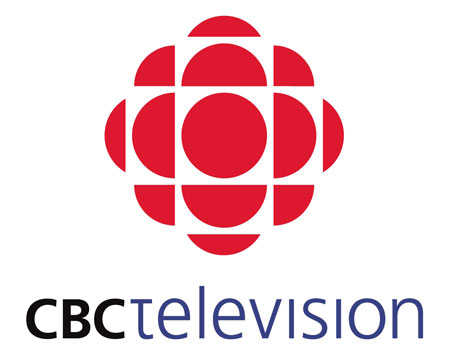| 2008: A Year in Review December 24, 2008 Dear HonestReporting Canada subscriber: As the 2008 calendar year comes to a close, we appeal to our devoted friends to make a generous contribution to HonestReporting Canada in support of our 2009 Campaign. As the 2008 calendar year comes to a close, we appeal to our devoted friends to make a generous contribution to HonestReporting Canada in support of our 2009 Campaign.For the last five years, we have depended on the good will and generosity of concerned individuals like you who help us to combat anti-Israel media bias worldwide. Especially in this upcoming year, as many are cutting back their charitable giving due to the economic downturn, we must broaden our base of support. The battle for public opinion is key for Israel and one in which HRC, working hand-in-hand with informed, committed people like you, is making a difference. Please help us raise $100,000 for our critical year end campaign by clicking here and making your donation now. As a reader of our media action alerts, you are well aware of the profound impact that HRC has had this past year. For a more detailed review of our efforts in 2008, please see our special 2008: Year in Review below. As the mainstream media were manipulated by Hamas spin doctors in exaggerating a humanitarian Mideast bureau chief Oakland Ross gave a platform for Hamas extremism by reporting that: "A Hamas representative said yesterday that five patients died over the weekend in Gaza hospitals because of the latest fuel embargo," only there was no evidence to confirm the veracity of this allegation. After HonestReporting Canada intervened, The Toronto Star issued a clarification in a follow-up report exonerating any Israeli culpability by noting that "five people died in their homes, for one reason or another, and were dead on arrival at the main hospital in Gaza City, but there was no evidence that the power shutdown played any role in their deaths." February: Globe and Mail Paints Hamas as Pragmatic Peaceniks  The Globe and Mail, Canada's "paper of record," bought into false notions that Hamas had evolved into pragmatic peaceniks who advocated "non-violent resistance." As there was no tangible evidence to support claims that Hamas had shed a new skin towards non-violence, we asked our readers to urge Globe and Mail editors to promptly clarify these false misconceptions. Within a matter of hours, hundreds of letters were dispatched sensitizing The Globe and Mail towards the need for fair and accurate reporting. March: HonestReporting Canada Helps Secure Excalibur Apology  We broke the news that a York University campus newspaper, The Excalibur, had featured an opinion piece that justified the deadly terrorist attack at the Mercaz Harav yeshiva in Jerusalem. Along with other concerned organizations, HonestReporting Canada condemned the publication of a column endorsing the murder of innocent children and asked the paper to issue an apology in the next edition. Within a week, the campus newspaper did just that and issued a formal printed apology. April: HRC Launches Montreal Office & French Monitoring Unit April was another busy month for HRC. While launching our Montreal office and expanding our media monitoring efforts to include French-language Canadian media coverage of Israel, we secured important retractions from Le Journal de Montreal and Agence France-Presse, while securing an on-air correction on CBC-TV. May: Montreal Gazette Editor-in-Chief Admits Israel Rally Story "Missed the Mark" A Montreal Gazette article about a pro-Israel rally in Montreal marking the 60th anniversary of the State of Israel "Missed the Mark" according to the Gazette's Editor-in-Chief. The article which focused on an isolated incident where a youth picked up the Quebec flag and discarded it in exchange for the flag of Israel, took on a surprisingly negative tone in what should have been a straight forward article on the joyous and historic celebration of Israel at 60. We encouraged our members to voice their concerns regarding The Gazette's coverage of the rally and within a matter of days, Gazette Editor-in-Chief Andrew Phillips acknowledged that their reporter's story had "Missed the Mark" and had stumbled at both the reporting and editorial levels. June: HRC Launches "Insider's Briefing" Series  In our inaugural "Insider's Briefing" Paul Agoston, HRC Assistant Director in Montreal, sat down with Agence France-Presse Jerusalem Bureau Chief, Patrick Anidjar, for an insider's perspective on the Middle East and reporting in the region. July: Media Monitor Reaches 20,000 Member Milestone We announced the growth of our subscriber base to a remarkable 20,000 members from across Canada. Our members, who act as "media patrollers," monitor local media outlets and notify HonestReporting Canada of lapses in accuracy or fairness, while complaining directly to the news outlet involved. August: An Unforgivable Error and a Dismal "On-Air" Correction at City TV  After CityTV International carried a report which left viewers with the false impression that Israeli soldiers had killed 11 pro-Palestinian protestors, we complained to CityTV who in a subsequent edition of the program issued a correction to clarify that "11 people (were) hurt, not killed… in West Bank clashes." September: CBC Critically Examines Israel's Enemies  When our public broadcaster, the CBC, went beyond Mideast "conventional wisdom" and featured critical reporting on the Iranian nuclear threat and on the dangers of Hamas' rule in Gaza, we felt that it was important to pause, take note, and expose excellence when it was deserving. We encouraged our members to recognize the CBC's excellent reporting and had several hundred of our members send articulate letters commending the CBC. October: Radio-Canada Wrong in Airing Pro-Palestinian Propaganda Film  On October 23, Radio-Canada, the French arm of the CBC, aired the pro-Palestinian propaganda film "Peace, Propaganda and the Promised Land" on its documentary film program "Les grands reportages." By airing a film rife with false premises, serious omissions, and unfounded malicious allegations, the network not only misinformed Canadians about the politics and history of the Middle East, it also breached its own journalistic standards and practices by airing a one-sided partisan polemic bent on vilifying a fellow democracy, the state of Israel. After mobilizing hundreds of people to complain en masse, Radio-Canada acknowledged that the documentary was "clearly pro-Palestinian" and said that it would broadcast an additional film "offering other viewpoints on Israel and Gaza" in the future. Subsequently, Radio-Canada's ombudsman validated our objections noting that the film "shouldn't have been broadcast" in the first place. November: HRC Conducts Media Bias Workshop at Concordia University  On November 5th, HonestReporting Canada was invited to speak at Concordia University in Montreal. HRC Executive Director, Mike Fegelman, addressed a political science and communications class, teaching a diverse group of students from varying backgrounds about the many impediments that exist which prevent fair and accurate media coverage of the Middle East. December: HRC Refutes "Massacre" Claim in the Toronto Star Toronto Star reporter Oakland Ross (pictured right) drudged up the old canard that Israel had committed a "massacre" in Jenin in 2002, thereby engaging in a cynical form  of historical revisionism. of historical revisionism.After bringing our concerns to the attention of the Star's editors, they agreed that the report had lacked context. A letter submitted by HRC was printed in a subsequent edition of the Star in a means to rectify the situation. HonestReporting.ca Thank you for your commitment to fair and accurate media coverage of Israel  Please send contributions by cheque to: HonestReporting Canada PO Box 6, Station Q Toronto, Ontario M4T 2L7 (416) 915-9157 Please send contributions by cheque to: HonestReporting Canada PO Box 6, Station Q Toronto, Ontario M4T 2L7 (416) 915-9157 |
| You are currently subscribed to honestreportingcanada as: pressing4truth.canada@blogger.com To unsubscribe click here or send a blank email to leave-8775521-30846861.70055780e4c7785a46ecfd4be95feb9c@pr1.netatlantic.com |

No comments:
Post a Comment